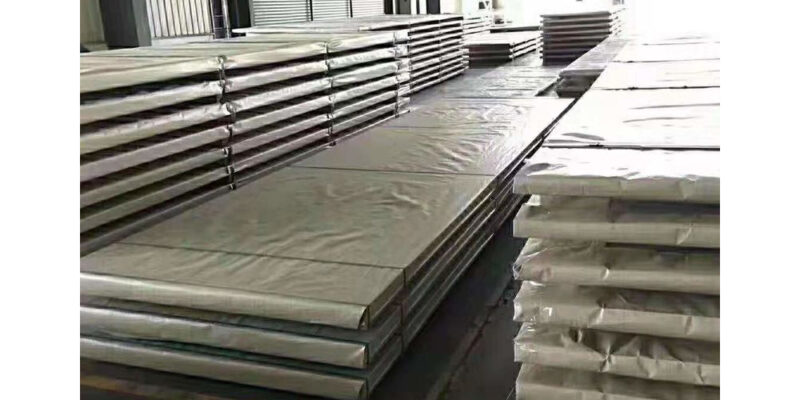
In industrial sectors, material selection is crucial to the success and longevity of projects. Durability becomes a key consideration when selecting materials for demanding environments where exposure to harsh conditions, heavy loads, or corrosive elements is common. Whether in the construction of large infrastructures, chemical processing plants, or offshore drilling platforms, choosing the right material ensures safety, cost efficiency, and sustainability over time.
The Importance of Durability in Industrial Applications
Durability in industrial materials translates to longer life cycles and reduced maintenance, making them an integral part of ensuring project efficiency. Materials that are resistant to wear and tear, corrosion, and environmental conditions reduce the need for frequent replacements and repairs. For industries such as oil and gas, construction, manufacturing, and power generation, these benefits result in significant cost savings.
One such material that has gained popularity for its exceptional durability is duplex steel sheets. Duplex steel offers a combination of strength and corrosion resistance, making it ideal for use in high-stress environments.
Understanding Duplex Steel Sheets
Duplex stainless steel is highly appreciated for its mechanical properties and corrosion resistance and has the ability to perform where other materials cannot. It contains both the characteristics of the austenitic and ferritic stainless steel which makes it a durable material. The high strength of the duplex steel sheets means that there is less need for thickness of the material, this is important in areas such as construction and the oil and gas industry where weight is a critical factor.
Duplex steel’s resilience to pitting, stress corrosion cracking, and fatigue ensures that it performs exceptionally well in harsh environments such as seawater and high-pressure applications. As a result, duplex steel sheets are increasingly being used in the construction of desalination plants, chemical tankers, and heat exchangers.
Key Factors in Choosing Durable Materials
- Corrosion Resistance Industrial materials are often exposed to corrosive elements like chemicals, saltwater, and extreme temperatures. Corrosion-resistant materials such as duplex steel are preferred in these environments due to their ability to withstand harsh conditions without degrading.
- Mechanical Strength High strength ensures that materials can handle heavy loads and stress without failure. For instance, duplex steel sheets offer enhanced strength compared to conventional austenitic stainless steel, which allows them to endure the stresses of industrial applications while maintaining their structural integrity.
- Cost Efficiency While durable materials may have a higher initial cost, they offer significant long-term savings by reducing the frequency of replacements and repairs. The extended lifespan of materials like duplex steel minimizes maintenance costs and downtime, offering a higher return on investment.
- Environmental Sustainability Durability is closely linked to sustainability. Materials with long lifespans reduce waste and the need for frequent production, contributing to more sustainable industrial practices. Duplex steel sheets are also recyclable, further enhancing their environmental appeal.
Applications of Durable Materials Like Duplex Steel Sheets
Durability becomes critical when materials are used in sectors where failure could result in catastrophic damage, such as:
- Offshore Oil and Gas Platforms: Exposure to saltwater, extreme pressure, and fluctuating temperatures demands materials that can resist corrosion and withstand high mechanical stress. Duplex steel is commonly used in these environments for piping, valves, and structural components.
- Chemical Processing: The production of chemicals often involves highly corrosive environments, making duplex steel a go-to material for tanks, heat exchangers, and pressure vessels. Its ability to resist chemical attack while maintaining strength under pressure ensures safe and efficient operation.
- Marine Applications: Saltwater is highly corrosive, and marine equipment must be made from materials that can handle constant exposure without deteriorating. Duplex steel sheets are used in shipbuilding and other marine infrastructure because of their excellent corrosion resistance.
- Desalination Plants: Producing fresh water from seawater involves exposure to corrosive environments, making corrosion-resistant materials critical. Duplex stainless steel’s ability to withstand chloride-rich conditions is why it is often used for desalination equipment.
Conclusion
In industrial settings, material durability is non-negotiable. Industries that rely on high-performance materials benefit from reduced downtime, lower maintenance costs, and enhanced safety. Duplex steel sheets represent one of the most durable options available today, providing superior strength and corrosion resistance across a range of demanding applications. By choosing durable materials like duplex steel, industries ensure not only the longevity of their projects but also a more sustainable and cost-effective approach to material selection.










